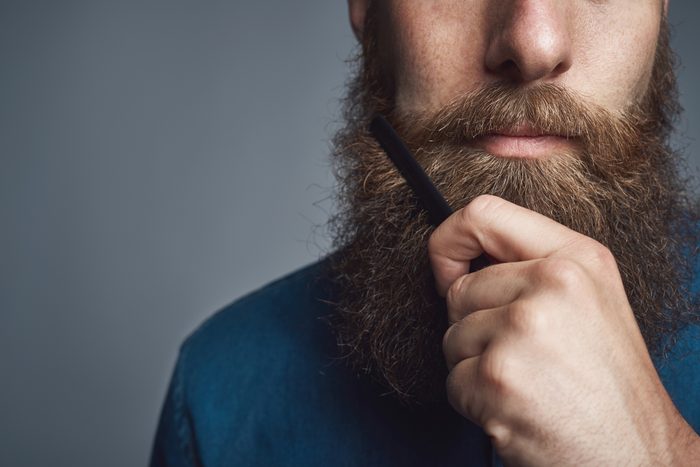
Facial hair as a health clue
You may have wondered if one beard style or another is right for you, but have you ever thought about what a beard might say about your health? Turns out, your beard is crying out to be heard. Joel Schlessinger, MD, a Nebraska-based board-certified dermatologist, and registered dietitian Paul Salter, explain what your beard is trying to tell you.
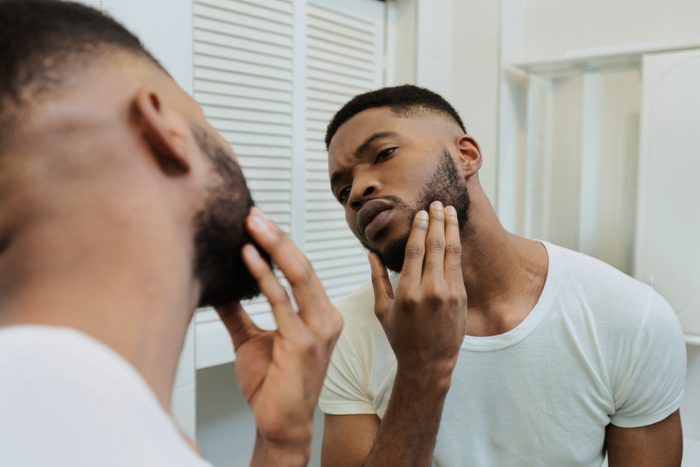
If your beard is: Falling out in small, round patches
You may have alopecia barbae, an autoimmune disorder that causes your body to start viewing your hair follicles as “intruders” and attack them until hair stops growing, Dr. Schlessinger explains. The good news is that it’s not contagious or dangerous in any way. The bad news is that it can cause irritation, burning, and inflammation. While there’s no real cure, it is treatable. Dr. Schlessinger says that minoxidil (Rogaine), has been shown to treat alopecia barbae; however, it’s not currently FDA-approved for use on the face, so talk to your doctor before starting any kind of treatment. Additionally, if you notice that your facial hair loss is accompanied by hair loss on your scalp, fatigue, weight gain or loss, or changes in your sleeping habits, mood, energy level, or digestion, see your doctor, as it’s possible that you could have a thyroid disorder or other health condition.

If your beard is: Thin or thinning
There are a number of possible causes, including a potential nutritional deficiency. “Chronic malnutrition has a major impact on hair loss and growth,” Salter says. “If adequate calories aren’t consumed, hair growth and maintenance won’t be optimized.” Protein, in particular, plays an integral role in the building and repairing of tissues, so your body will pull protein from wherever sources it can if you don’t get enough protein, which can lead to hair loss. Stock up on healthy sources of protein such as eggs, lean beef, chicken, turkey breast, and Greek yogurt. Other nutrients that encourage healthy hair growth include vitamins E and C, zinc, biotin, and fatty acids, so making sure you eat a well-rounded diet and drink plenty of water; both are key to healthy hair growth. You may also have a food allergy, which can cause a large-scale production of inflammation in your body. While symptoms vary from person to person, hair loss is very common, Salter says. Hair loss is also a common symptom of anemia. Keep in mind that facial hair differs in structure from scalp hair, and Salter cautions that he’s not aware of any research that focuses on how nutrition interventions specifically impact facial hair growth. Bottom line? If you notice any hair loss either on your scalp or face—especially if it’s accompanied by other symptoms—talk to your doctor.
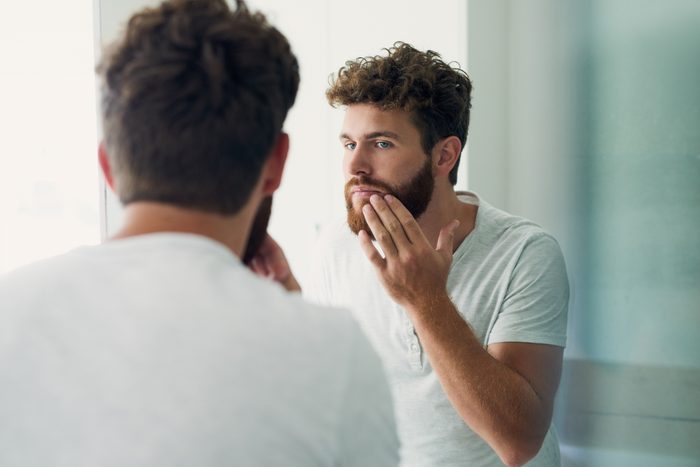
If your beard is: Really thick
Because facial hair is a secondary sex characteristic, the way your body reacts to testosterone plays a large role in how your facial hair develops. If you can rock a full beard, you’re probably more sensitive to testosterone than your baby-faced friends. (Testosterone is what turns your soft vellus hair—the light, downy hair that develops on your body during childhood—into terminal hair, the thicker, coarser hair that develops during puberty.) However, having a beard doesn’t necessarily mean you’re more virile, though you may have heard that myth once or twice. Unfortunately, that’s all it is: a hair myth.
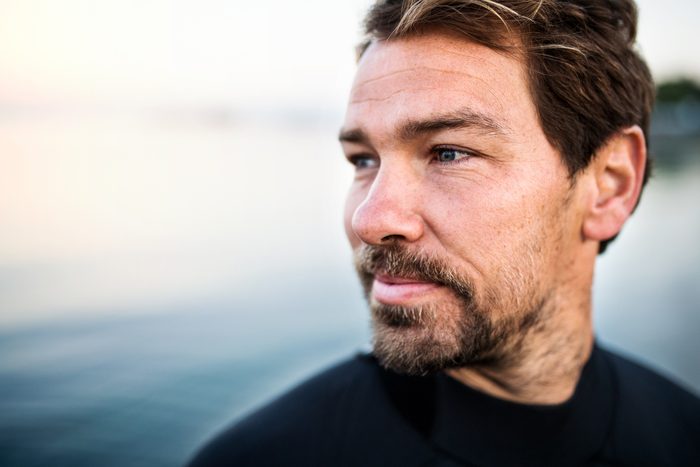
If your beard is: Dry and brittle
You’re probably over-cleaning it. Even though your facial hair differs structurally from the hair on your head, it is important to show your facial hair the same TLC you’d give the rest of your hair. Try using a mild cleanser—Dr. Schlessinger recommends using one that’s designed for both your face and your beard, though he says shampoo can work in a pinch, applying a conditioning beard oil (try Jack Black Beard Oil, which it contains marula oil to plump up strands and lock in moisture), and combing or brushing it every day to keep it looking neat and tidy.
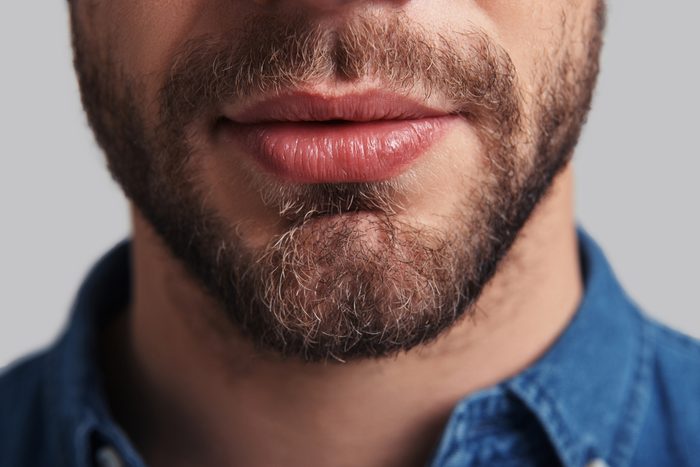
If your beard is: A little flaky
You might have beard dandruff. Luckily, there’s an easy fix for this one. Dr. Schlessinger recommends CLn Shampoo, which is gentle enough to be used on both your scalp and your face, and contains bleach, one of the few antibacterial ingredients that he says doesn’t lead to antibiotic-resistant bacteria. Use one to three times per week to relieve dandruff, as well as itching, dermatitis, or folliculitis (inflammation of the hair follicle that can cause those small red pimple-like bumps).

If your beard is: Completely non-existent
Hey, it happens. If you’ve literally never been able to grow a beard, and your doctor says your health checks out, you can blame this on your parents, as genetics play another major role in hair growth development. Unfortunately, there’s nothing to be done about this one. However, take heart: Not having a beard isn’t inherently dangerous or unhealthy to you in any way. Next, check out the reasons for excess body hair.